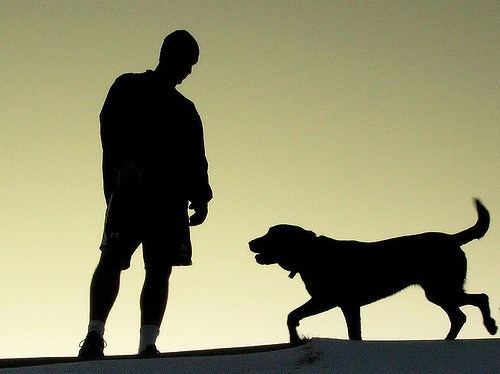
The right training partner can make your training experience a great one. As it turns out, dogs are a runner’s best friend.
I personally trained for 3 marathons with my faithful black Lab, Jack, who enjoyed every minute on our trail runs together. At his peak age of 5, Jack was trainable beyond the puppy phase while not too old to be at risk for injury.
Black Labs make excellent partners because they are natural runners and have high amounts of energy. They are among the many breeds of dog that enjoy running and are able to withstand the demands of endurance training.
Training Safely
Training with a dog can be a rewarding experience for both the dog and its owner, but there are some serious considerations to make for the sake of your canine pal’s safety.
Do not expect your tea cup poodle to be able to train for a marathon, or your 15 year old family mutt to be able to last longer than a mile or two. Don’t take your dog out on the hottest day of the year and expect their sensitive pads to be able to handle the same pavement that you can with your rubber-soled feet.
Do carry water for your dog, and stick to a loop course that will take you home if your pooch tuckers out. These precautions matter to the health of your dog and should be taken into consideration before each and every run.
They also need recovery time. If you notice your dog is sluggish or sleepy, make sure that they are not being over trained.
Their nutritional needs will also increase, just as yours does during training. My dog Jack ate approximately 30% more during our peak season.
Top 11 Dog Breeds For Running
Need Inspiration? Click here to read about how a service dog named Roxie has completed marathons and extreme races alongside her owner.
In general, medium to large dog breeds are better distance runners than small dogs. Additionally, dogs that were raised for specific jobs have an advantage, since they were often bred to enhance specific traits such as speed and stamina.
Here is the Runner’s list of the best 11 dog breeds for running:
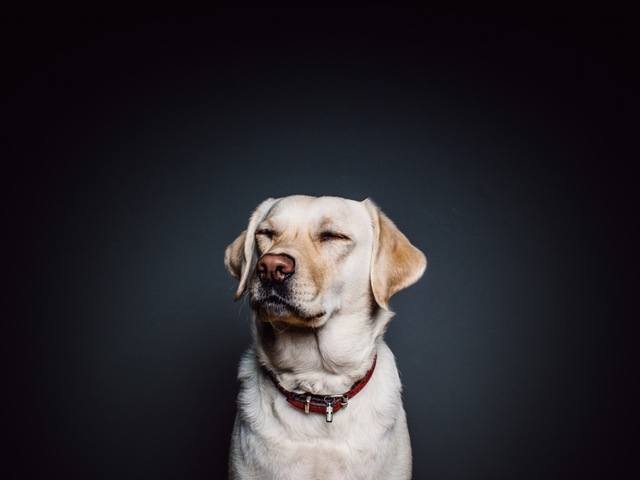
1. Labrador Retriever
- Dog Group: Sporting Group
- Height: 21.5 to 24.5 inches
- Weight: 55 to 80 pounds
With its friendly and outgoing demeanor, it’s no surprise that the Labrador Retriever is the most popular dog in America. The Lab was historically a retrieving gun dog for waterfowl, although these days, they are more likely to be used as guide dogs, search and rescue dogs or drug-sniffing dogs. Their high energy, athletic build and obedient nature makes them one of the best choices for a running companion.
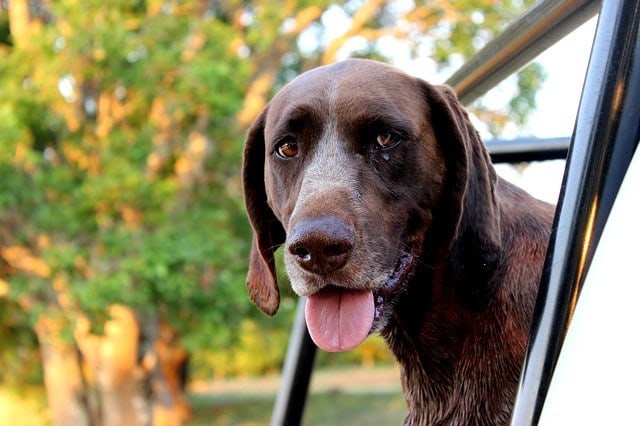
2. German Shorthaired Pointer
- Dog Group: Sporting Group
- Height: 21 to 25 inches
- Weight: 45 to 70 pounds
The German Shorthaired Pointer is a versatile hunting dog that was bred to retrieve many different types of game, over land and from the water. They are friendly and smart and always willing to please their two-legged best friend. Whatever course you choose to run for the day, The German Shorthaired Pointer will be right by your side.
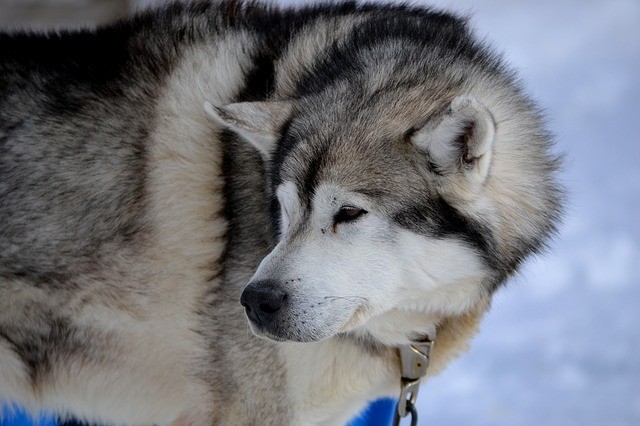
3. Siberian Husky
- Dog Group: Working Group
- Height: 20 to 23.5 inches
- Weight: 35 to 60 pounds
The Siberian Husky is a working dog, through and through. Traditionally, they have been used as a part of sled dog teams to transport heavy goods over harsh terrain. As you might have guessed, they are especially well-suited for running in the cold. If you like to run in all four seasons, The Siberian Husky might just be the perfect running companion for you.
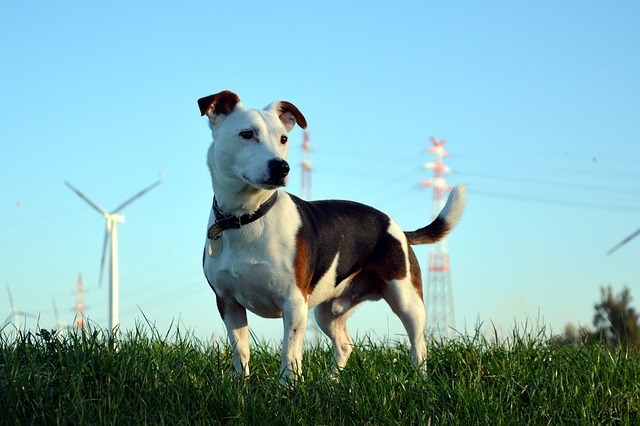
4. Jack Russell Terrier
- Dog Group: Terrier Group
- Height: 12 to 15 inches
- Weight: 13 to 17 pounds
The Jack Russell Terrier is the smallest dog on our list, which might peak the interests of apartment or condo dwellers. However, don’t be fooled by their size. The Jack Russell Terrier is a high-energy dog that requires plenty of exercise and mental stimulation to be on their best behavior. Their high energy is also what makes them a great running partner.
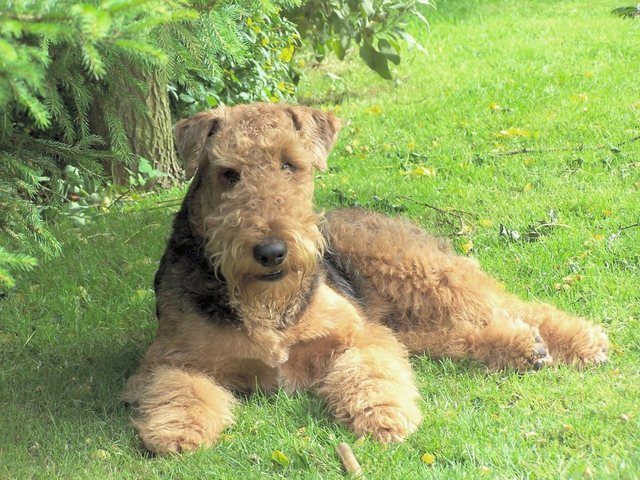
5. Airedale Terrier
- Dog Group: Terrier Group
- Height: 21 to 23 inches
- Weight: 40 to 65 pounds
The Airedale Terrier is the largest breed in the Terrier Group. They were bred to catch otters, rats and other small vermin. Because of this, they are known to have a high prey drive. Proper positive-based training is a must if you don’t want to be zigzagging in all directions every time a squirrel or rabbit crosses your path. If you can master this aspect, the clever and courageous Airedale Terrier will reward you will miles and miles of running companionship.
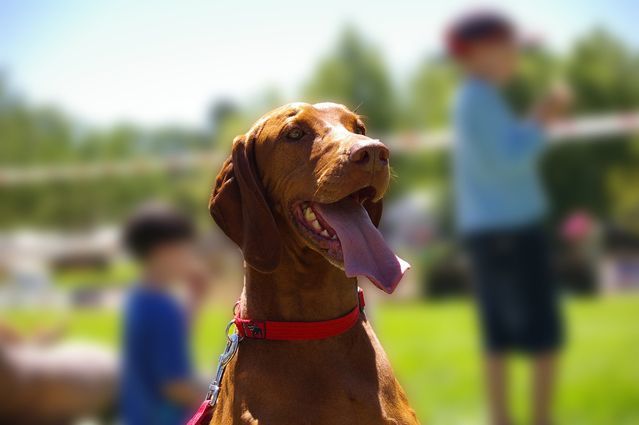
6. Vizsla
- Dog Group: Sporting Group
- Height: 21 to 24 inches
- Weight: 45 to 65 pounds
The Vizsla is a hunting dog originating from Hungary. They were bred to work in all sorts of terrains, including dense forests. They will be excellent companions on all types of runs, but their history of working in the woods make them especially well-suited for trail runs.
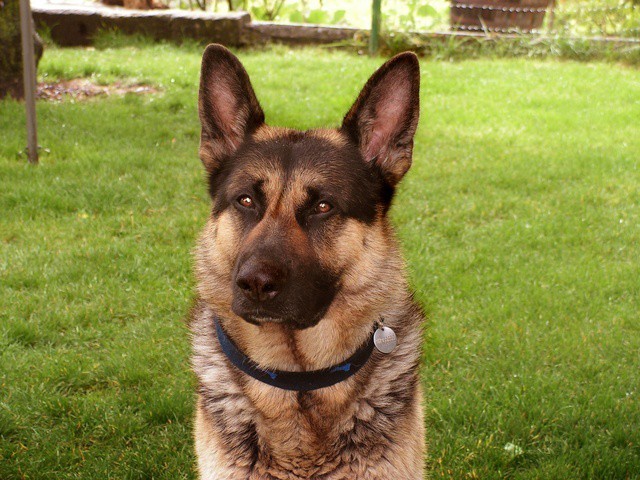
7. German Shepherd
- Dog Group: Herding Group
- Height: 22 to 26 inches
- Weight: 75 to 95 pounds
The Vizsla is a hunting dog originating from Hungary. They were bred to work in all sorts of terrains, including dense forests. They will be excellent companions on all types of runs, but The German Shepherd is one of the most popular dogs in America, and it’s easy to see why. Their bravery and loyalty is unmatched by any breed. They are strong, agile, and athletic – all traits that make them an awesome running partner. As an added bonus, it will be like you are running with a personal bodyguard.
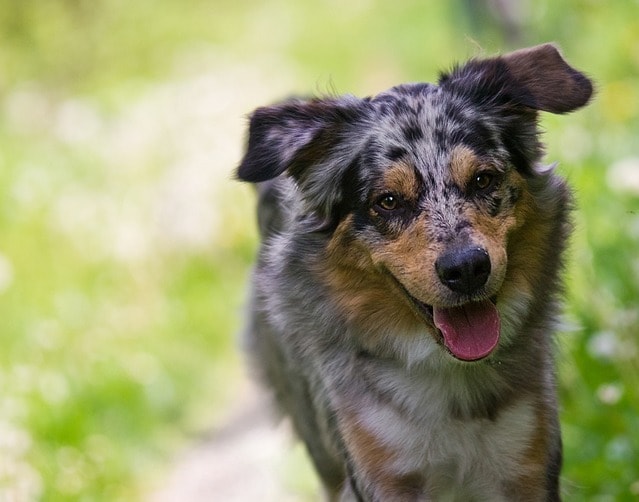
8. Australian Shepherd
- Dog Group: Herding Group
- Height: 18 to 23 inches
- Weight: 40 to 65 pounds
The Australian Shepherd is an intelligent, energetic, and work-oriented dog. They thrive on being on the job, whether it be herding sheep or running outdoors with their owners. Their high energy can be a challenge for some, but if you need a dog to match your passion for running, the Australian Shepherd could be a great fit.
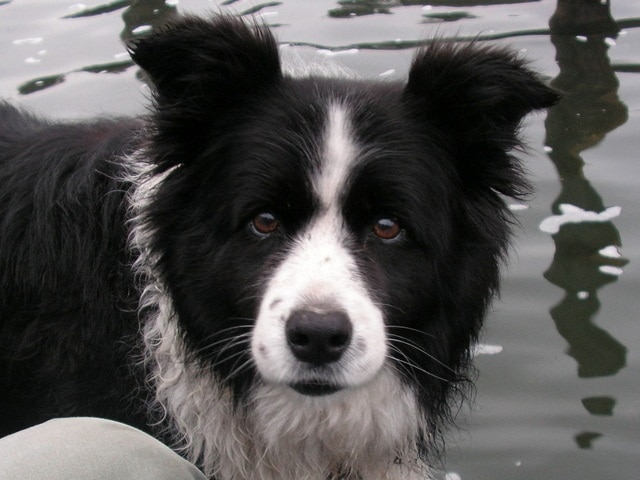
9. Border Collie
- Dog Group: Herding Group
- Height: 18 to 22 inches
- Weight: 30 to 45 pounds
The Border Collie is no stranger to endurance. Originally bred to herd sheep in the hilly borderlands between Scotland and England, it’s not unusual for a working Border Collie to travel 50 miles or more in a single day. This predisposition for running long distances make the Border Collie suitable for even the most hardcore runners.
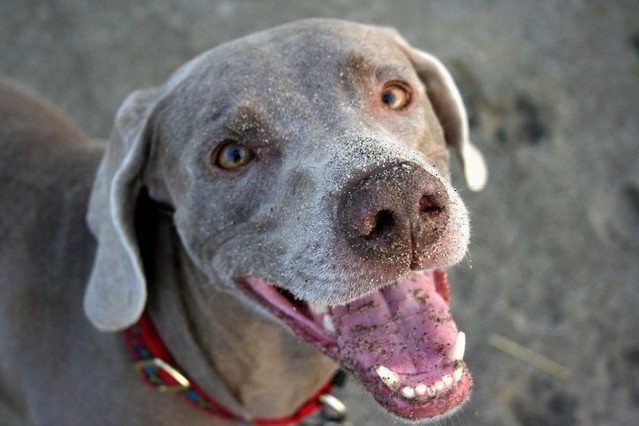
10. Weimaraner
- Dog Group: Sporting Group
- Height: 23 to 27 inches
- Weight: 55 to 85 pounds
Originating from Germany, the Weimaraner was bred to hunt large game such as deer and bear. This required an abundance of energy and endless stamina, both traits that have been passed down to the present-day Weimaraner. Whether you like to 5Ks or marathons, the friendly and obedient Weimaraner will always be up to the task.
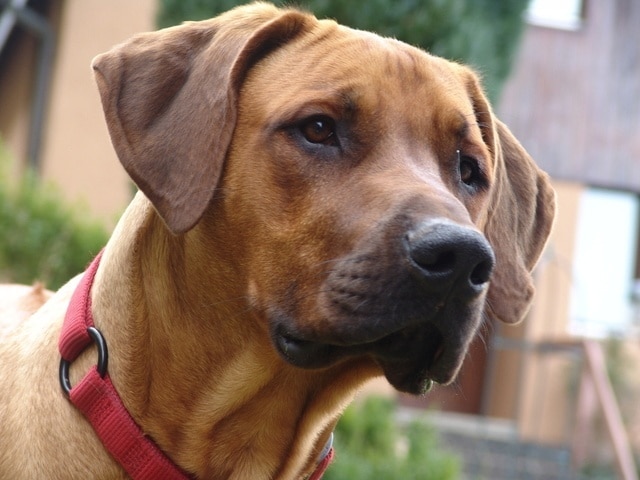
11. Rhodesian Ridgeback
- Dog Group: Hound Group
- Height: 24 to 27 inches
- Weight: 70 to 85 pounds
Named after the distinctive ridge on its back, the Rhodesian Ridgeback is a handsome, affectionate and even-tempered companion. Despite these amiable traits, you may be surprised to learn that the Rhodesian Ridgeback is best known for being used to hunt lions. Unless you think you can outrun a lion, I think it’s safe to say that the Rhodesian Ridgeback will do just fine as your running partner.
Final Thoughts
It is imperative that no matter which dog you choose as your training partner, you allow them to train with you, instead of just bringing them with you to run on race day (when the race allows your pooch to participate). Animals need to develop endurance, just like their human counterparts.
It should also be noted that just because your dog has trained for the marathon with you, they may still not be cut out for race day. The crowds may be too much for dogs to focus during the run.
Most races still discourage or disallow dogs from participating, but don’t let that stop you from some great training sessions with your best friend.
Now that you’ve seen our list, what’s on yours? What breed do you think is the best running dog?
